TP-Link Deco M9 Plus vs. Deco M5: Which mesh router system should you buy?
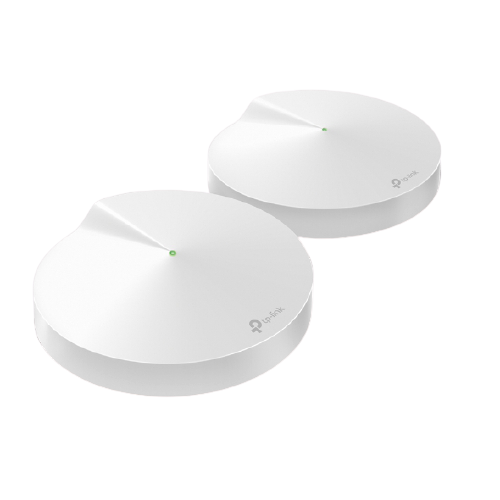
Big on speed
The TP-Link M9 Plus offers great specs in a tiny package. This white plastic puck can use its tri-band Wi-Fi to create a fast mesh network at high speeds, even when connected to a mesh point. The Deco M9 makes a great start to a mesh network, and the inclusion of two Ethernet ports on each node makes upgrading your home network a breeze.
For
- Fast AC2200 Wi-Fi speeds
- Tri-band Wi-Fi keeps mesh speed high
- Two gigabit Ethernet ports
- ZigBee smart home hub
- HomeCare software included
Against
- More expensive
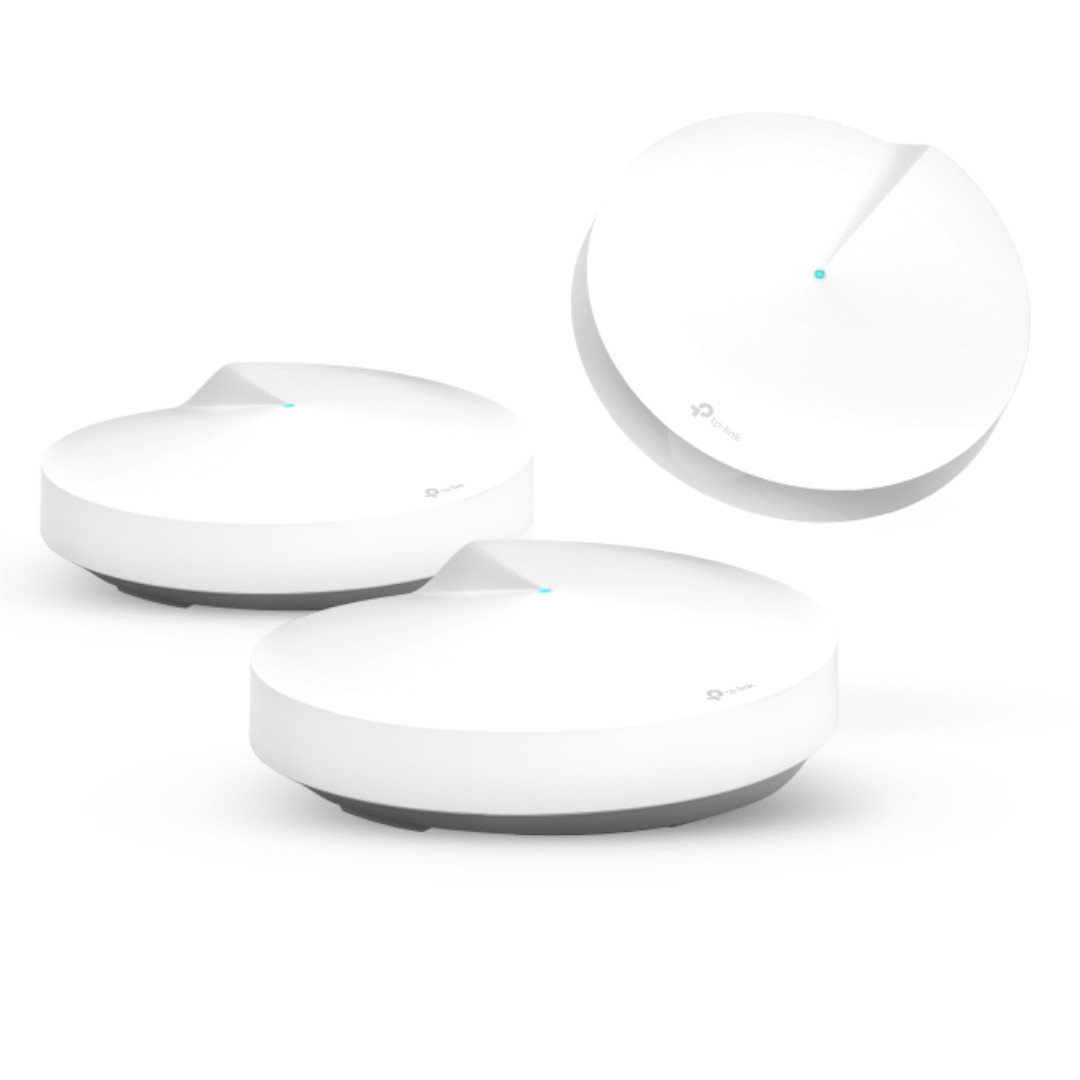
Big on value
Punching well above its weight in performance, the TP-Link Deco M5 surprises with its snappy AC1300 Wi-Fi speeds and mesh capabilities. The small package and expandability with other Deco products make it a great starter for your mesh network. The Deco M5 is also a great choice to expand an existing Deco mesh.
For
- AC1300 speeds are enough for standard browsing
- Small footprint
- Great price
- Two gigabit Ethernet ports
- HomeCare software included
Against
- Dual-band will hamper mesh performance
Although it sits a bit taller and less than half an inch wider than the Deco M5, the TP-Link Deco M9 Plus looks nearly identical to its smaller sibling. They pack similar capabilities as well, though the Deco M9 Plus has several technical advantages. It has an extra 5GHz Wi-Fi band allowing a higher top speed and a better quality backhaul. It also has a built-in Zigbee hub to control compatible smart home equipment. When it comes down to it, the extra power of the Deco M9 Plus will keep up much better with multiple devices making it a strong pick for families or shared homes. With that said, here are more details we found when pitting the TP-link Deco M9 Plus vs. M5 so you can make an informed decision.
TP-Link Deco M9 Plus vs. Deco M5: Coverage and speed
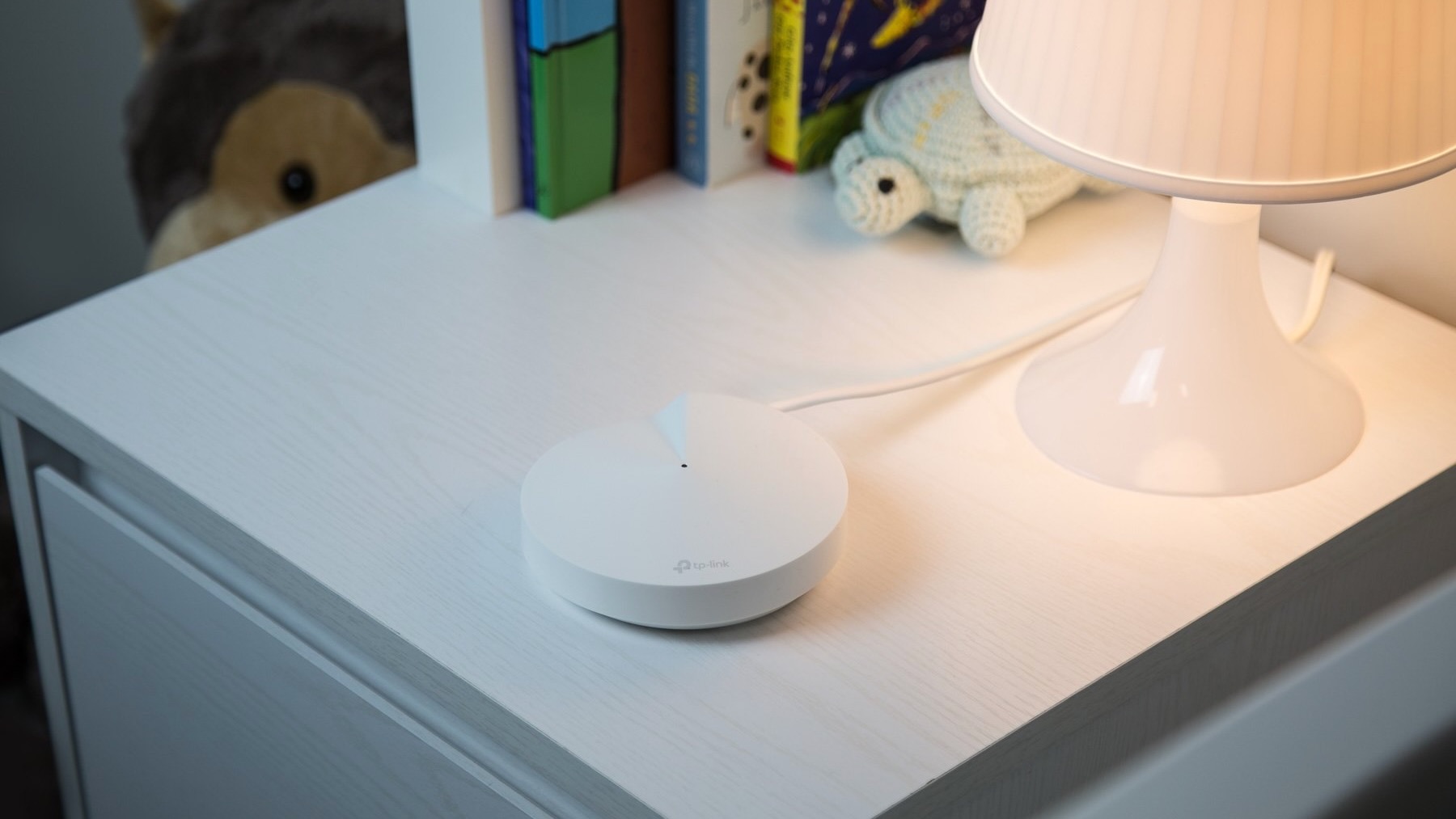
The Deco M5 packs all the essentials into a small package with a very competitive price for its feature set. The Deco M9 Plus takes the lead when it comes to its larger coverage area at 2,500 square feet per unit compared to the 2,000 square feet covered by the Deco M5. Keep in mind that there will be some overlap necessary when building your mesh. Of course, every house will be different depending on building materials and layout, and it's worth considering if you will even benefit from moving to a mesh setup. You can cover any weak spots in the house with either set by adding any of the Wi-Fi 5 Deco routers so that a Deco M5 paired with a Deco M9 Plus setup rounds out your coverage.
| Header Cell - Column 0 | Deco M9 Plus | Deco M5 |
|---|---|---|
| Wi-Fi speed | AC2200(400Mbps + 867Mbps + 867Mbps) | AC1300(400Mbps + 867Mbps) |
| Wi-Fi connectivity | Tri-band Wi-Fi 5 | Dual-band Wi-Fi 5 |
| Antennas | 8 | 4 |
| MU-MIMO | yes | yes |
| Ethernet ports | 2 | 2 |
| Dimensions | 5.7 x 1.8 inches | 4.7 x 1.5 inches |
| Coverage (1 units) | up to 2,500 sq ft | up to 2,000 sq ft |
The Deco M5 pushes reasonably fast AC1300 Wi-Fi speed, which will work for most standard usage. These speeds break down to 400Mbps on the 2.4GHz band and 867Mbps on the 5GHz band. The Deco M9 Plus adds another 5GHz band to the equation bringing up its total capacity to AC2200.
Keep in mind that a device can only connect to one of these bands simultaneously, so neither is delivering full gigabit speeds to a single device. The extra band on the M9 Plus mainly allows the mesh points to operate at full speed without needing to connect to the device and base router on the same band simultaneously, essentially doubling performance compared to the M5.
The Deco M5 will be enough for most people when it comes to downloading speeds and will only fall behind on large downloads that can saturate a network over 500Mbps. It is possible to use the two models together if one area needs a stronger connection than another.
TP-Link Deco M9 Plus vs. Deco M5: Build your mesh
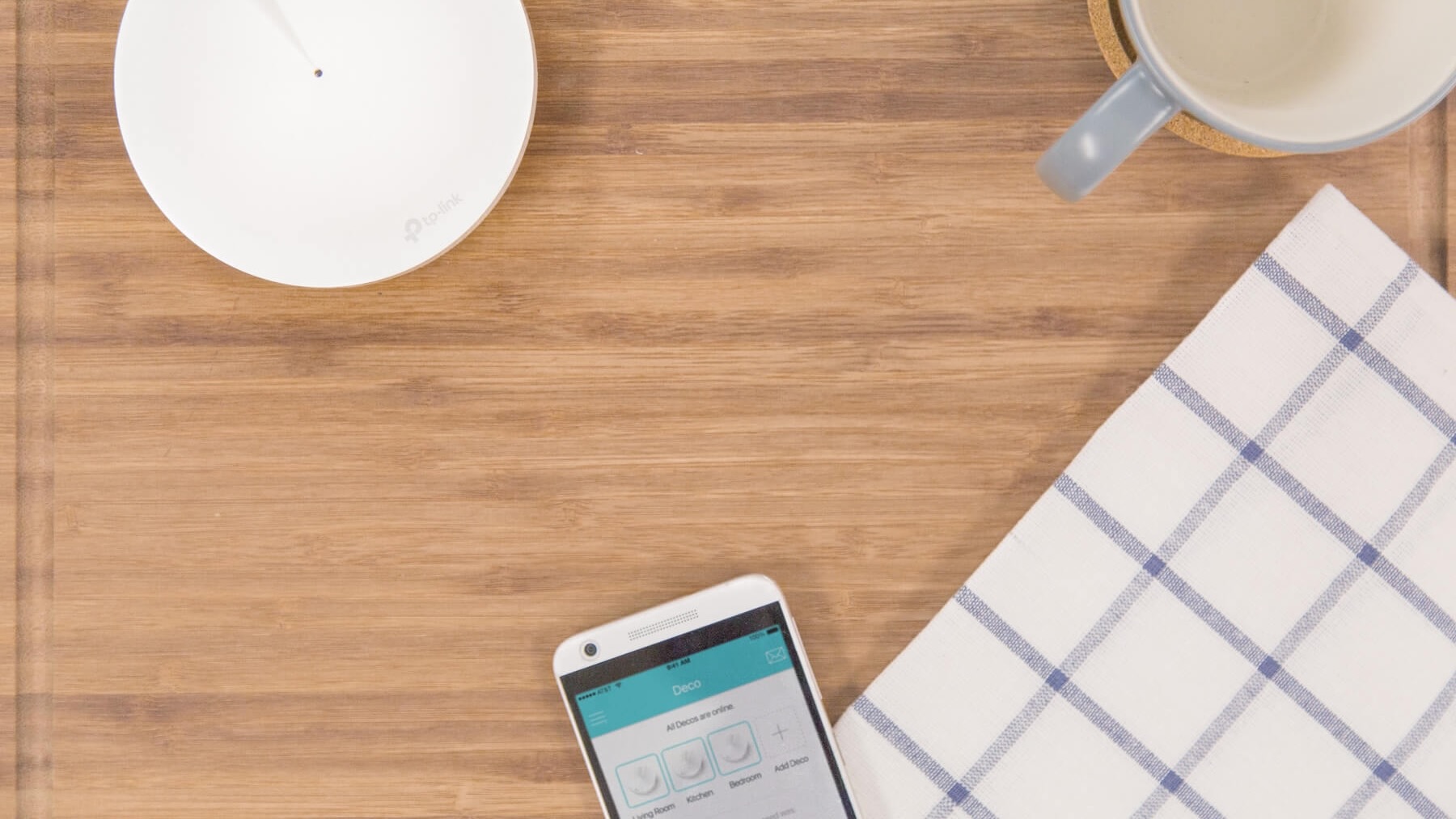
A nice feature of the TP-Links Deco line is that all of these routers are compatible, making it easy to build a mesh with plenty of speed where you need it without wasting money on lower priority areas in your home. You could even opt for a Deco set that can transmit over your home's power lines for the garage or a basement that might have a weak wireless signal to the rest of the mesh. Everything is set up with the Deco app and only takes a few minutes to complete the process. This app can customize all of the router's settings and help place additional mesh points in the most efficient area.
The speed difference between these devices mainly comes down to the third 5 GHz band available on the Deco M9 Plus. This additional band can strengthen the connection between the mesh network points without giving up too much speed. This mesh will be able to deliver results similar to other tri-band mesh systems like the Meshforce M7 or even the Eero Pro. A mesh network works by having the ability to intelligently direct data to the mesh point that's closest to your device. The speed provided by a third band helps a connection stay fast when connected to a remote mesh point.
Be an expert in 5 minutes
Get the latest news from Android Central, your trusted companion in the world of Android
TP-Link Deco M9 Plus vs. Deco M5: The details make a difference
The built-in Zigbee smart hub contributes to the larger TP-Link Deco M9 Plus size compared to the Deco M5. If you don't have a compatible smart home hub already, this can save even more space and reduce the complexity of your home network. This feature is not that useful for someone who has yet to hop on the smart home trend, but this support can be convenient in the future.
Speaking of convenience, both of these routers are small enough to tuck out of sight without compromising on the positioning. The matte white weather radar design on the top of the device does stand out a bit but should blend in well enough in any house.
Finally, each of these Deco routers comes with TP-Link's HomeCare. This software package included advanced parental controls with scheduling and content filters. HomeCare will also scan your inbound traffic for known risky connections and block them before they can affect your system or network. Finally, if a device does get infected, HomeCare will isolate that device's connection to make sure it doesn't infect any others on the network.
TP-Link Deco M9 Plus vs. Deco M5: Should you buy it?
The point of a mesh network is to allow expansion and create greater convenience. The TP-Link Deco M9 Plus makes a superior wireless mesh with a better connection speed to the mesh points from the primary router with its tri-band connection. In every category except pricing, the Deco M9 Plus is the stronger product. Still, if you are looking to get a bigger speed boost in your home, choosing Deco X60 or another great Wi-Fi 6 mesh will be a longer-term solution.
While many of the best wireless rotuers can offer greater speeds than either Deco system, these Deco systems can deliver speed with greater consistency around the home. If you already have part of a Deco mesh network and are looking to expand it where overall speed is not as important, the Deco M5 is still a powerful mesh router.

No speed compromise
The TP-Link Deco M9 Plus offers great tri-band connectivity and AC2200 speeds in a small housing with many expansion options.
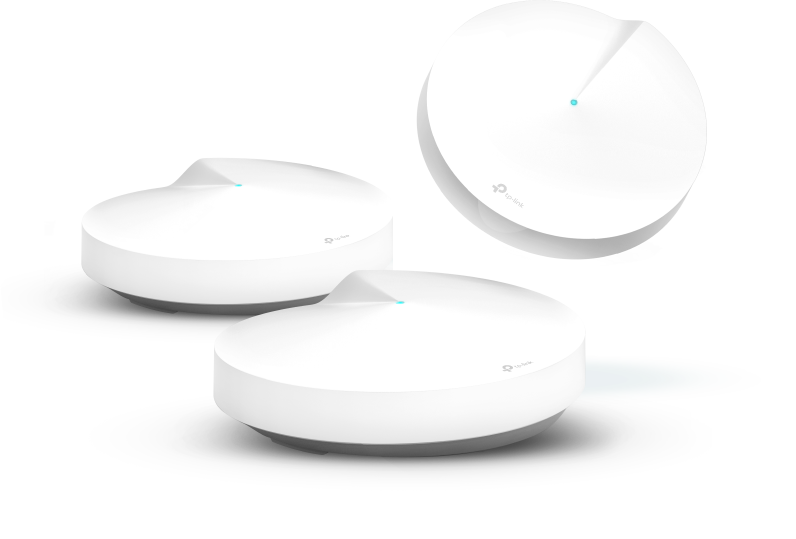
Great features at a mid-range price
The TP-Link Deco M5 has more than enough speed for most people and is a great value covering most homes with three units and easy expansion.
When Samuel is not writing about networking or 5G at Android Central, he spends most of his time researching computer components and obsessing over what CPU goes into the ultimate Windows 98 computer. It's the Pentium 3.

